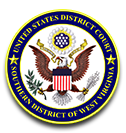- Opening Statements.
At the commencement of the trial, the party upon whom rests the burden of proof may state, without argument, its claim and the evidence expected to support it. The adverse party may then state, without argument, its defense and the evidence expected to sustain it. If the trial is to the jury, the opening statements shall be made immediately after the jury is impaneled. If the trial is to the court, the opening statements shall be made immediately after the case is called for trial. Opening statements shall be subject to time limitations imposed by the assigned judicial officer. In actions involving several parties and unusual procedures, the judicial officer, after conferring with attorneys and unrepresented parties, shall direct the order and time of the opening statements in a manner appearing just and proper.
- Closing Arguments.
The right to open and close the arguments shall belong to the party who has the burden of proof, without regard to whether the defendant offers evidence. Where each of the parties has the burden of proof on one or more issues, the judicial officer shall determine the order of arguments. In actions involving several parties and unusual procedures, the judicial officer, after conferring with attorneys for the parties, shall determine the order of arguments in a manner appearing just and proper. Arguments shall be subject to time limitations imposed by the judicial officer, giving due consideration to the length of the trial, the number of witnesses and exhibits, the complexity of issues, and the nature of the case.
The opening argument of plaintiff before the jury shall be a fair statement of plaintiff's case and shall consume at least one-half of the entire time allotted to plaintiff's counsel for opening argument. In the event that one-half of the allotted time is not used, one-half shall nevertheless be charged by the judicial officer to plaintiff's opening argument
After plaintiff's opening argument, counsel for defendant may elect to argue the case or may decline. If counsel for defendant declines to present argument, the case will be submitted without further argument by plaintiff and defendant.
Opening Statements Closing Arguments to Jury
